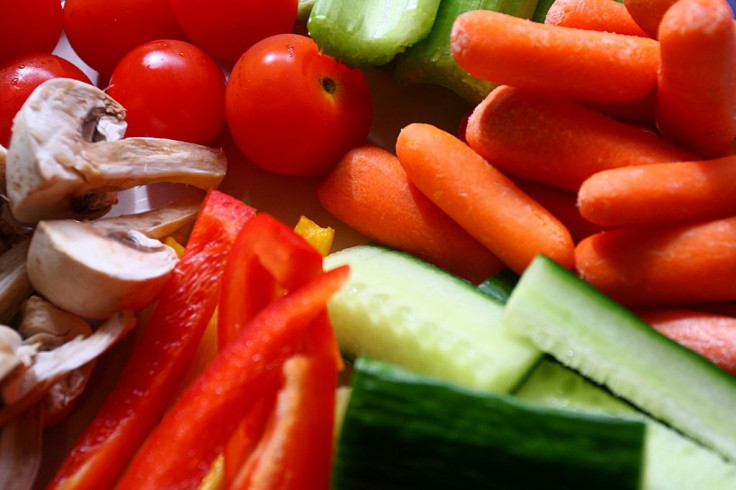Fewer Than Five Servings Of Fruits Or Vegetables Daily May Kill You: How Many Should You Be Eating?

"Eat your fruits and vegetables!" is a phrase we've all heard — from the very beginnings of our childhood. But as we get older, integrating these nutritious staples into our fast-paced lives becomes difficult.
A new study indicates that we should find the time to eat our fruits and vegetables.
In a 13-year study of 71,000 Swedes, aged 45 to 83, life expectancy in relation to fruit and vegetable intake was measured. Participants were asked how many fruits and vegetables they ate each day at the start of the study, between 1997 and 1998. Those who ate at least one serving of fruit a day lived 19 months longer than those who never ate fruit. Similarly, those who ate at least three servings of vegetables per day lived 32 months longer than people who reported not eating vegetables. Close to 11,500 of those enrolled in the study had died by December 2010.
So, how many servings of fruits and vegetables do we need?
The researchers have measured that five servings a day are best, and that fewer servings lead to less optimal results, while more servings do nothing to lengthen life further.
Researchers found that people who had reported eating no fruit or vegetables at the start of the study were 53 percent more likely to die during the follow-up period than those who got five daily servings. About 11,500 of participants enrolled had died by the end of 2010.
Alicja Wolk, Ph.D., co-author of this study, told Reuters that she is often faced with the question of whether people should eat more fruits than vegetables, or the other way around. "Eat vegetables more than fruit, but eat both," she said. Fruits and vegetables contain different types of vitamins and minerals, which cannot be found in many other foods and which our bodies cannot make alone. Fruit is generally higher in calories but both fruits and vegetables are highly nutritious and contain a lot of fiber. And, in the appropriate serving size, both are beneficial, leaving the better choice to be a matter of personal preference.
Fruits and vegetables are also found to reduce the likelihood of dangerous diseases. According to ChooseMyPlate.gov, vegetables and fruit can protect against cancers, heart disease, obesity, and diabetes. They also maintain the immune system and blood pressure, along with promoting brain development.
Even when the researchers accounted for gender, smoking, exercise, alcohol consumption, and body weight, the overall results did not change: eating fruits and vegetables ensured health, while neglecting to eat them made people more likely to die.
It is clear from this study that fewer than five daily servings of fruits and vegetables is clearly associated with shorter survival and death. If forgetting to eat your fruits and vegetables can more than double your likelihood to die, what's so bad about a few seeds and green veggies on your plate?
Source: Bellavia A, Larsson SC, Bottai M, Wolk A, Orsini N. Fruit and Vegetable Consumption and All-Cause Mortality: A Dose-Response Analysis. American Society for Nutrition. 2013.
Published by Medicaldaily.com



























